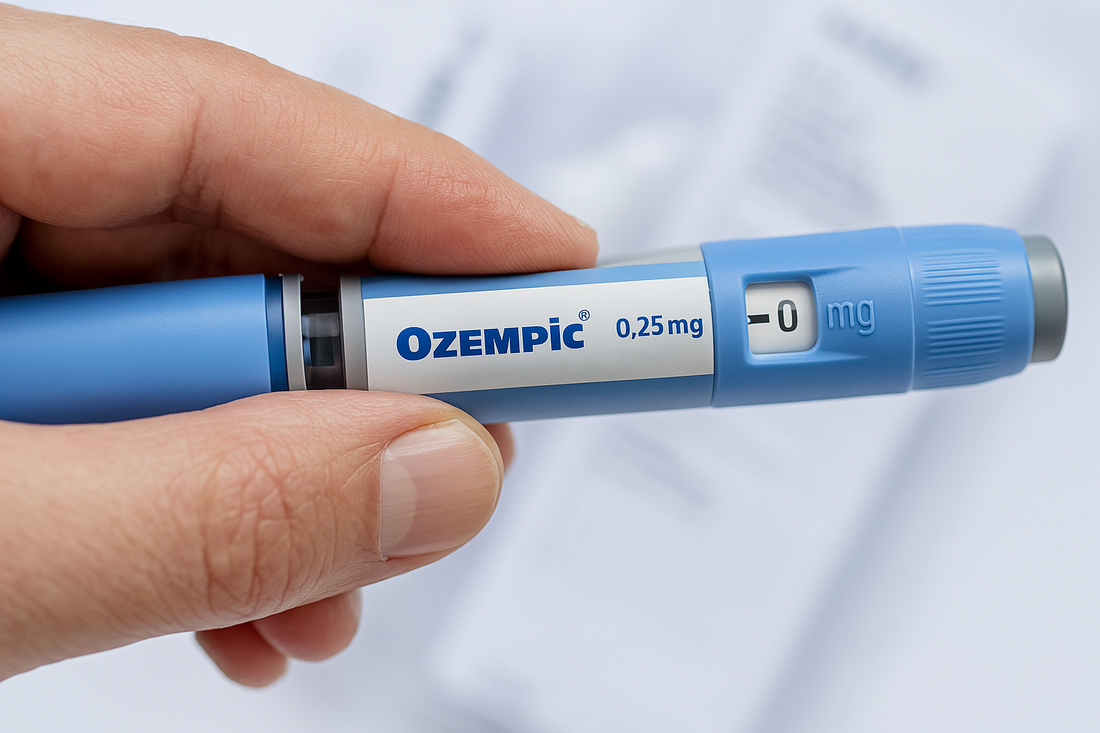
Can New Weight Loss Drugs Harm Your Muscles?
Share
In recent years, medications like semaglutide and tirzepatide have gained popularity for helping people lose weight without surgery. These drugs belong to a group called incretin-based therapies. But a growing concern has emerged: do these powerful weight loss drugs also cause harmful muscle loss?
Let’s break down what recent research says.
What Are Incretin-Based Therapies?
Incretin-based drugs are medications that mimic hormones in your body to help control blood sugar and reduce appetite. Two common examples are semaglutide (used in Wegovy and Ozempic) and tirzepatide (used in Mounjaro and Zepbound). These drugs help many people lose 10 to 20 percent of their body weight over time.
Why Are People Worried About Muscle Loss?
As people lose weight, they usually lose some muscle along with fat. Normally, about 25 percent of the weight lost is lean body mass, which includes muscle, liver, bones, and other organs. But studies have shown that some patients on these medications lose a bit more lean mass than expected, sparking concern that muscles might be affected too much.
This matters because muscles are not just for strength and movement. They help regulate blood sugar, protect joints, and support overall health. Losing too much muscle can make you feel weak and reduce your ability to stay active.
What Did the New Study Find?
Researchers recently tested how these drugs affect muscles in both mice and humans. Here's what they discovered:
- Fat loss is greater than muscle loss: In both animals and people, the weight loss from these drugs came mostly from fat. Muscle mass did decrease a little, but not more than expected.
- Muscle function was preserved: Even when muscle size got slightly smaller, muscle strength and performance stayed the same or even improved in some cases.
- Muscle-to-body weight ratio improved: Since fat loss was more significant than muscle loss, the ratio of muscle to total body weight actually went up. This means your muscles are doing more relative to your lighter body.
- Mobility got better: Mice treated with these drugs ran farther and had better endurance. People in the study also maintained their grip strength and leg strength even after losing some muscle size.
What About Extreme Conditions?
To dig deeper, the researchers tested the drugs in mice with immobilized limbs (like having a leg in a cast). Even in these extreme cases, muscle loss was similar to what happened with regular dieting. There was no extra harm from the medications themselves.
They also compared different drugs, including newer versions that act on multiple hormone pathways. Again, fat loss was much greater than muscle loss, and liver mass dropped significantly too.
What Does This Mean for You?
If you’re considering or currently taking an incretin-based weight loss drug, here’s the good news:
- You’re likely to lose more fat than muscle
- Your strength and ability to move may stay the same or even improve
- The small amount of muscle loss is likely not harmful, especially compared to the health benefits of losing excess fat
How Can You Protect Your Muscle?
While these drugs appear safe for muscle in most people, you can take simple steps to support your body during weight loss:
- Strength training at least twice a week helps preserve and build muscle
- Eat enough protein, aiming for 1.2 to 2 grams per kilogram of body weight per day
- Stay active with regular walking, resistance bands, or bodyweight exercises
Final Thoughts
New weight loss medications are powerful tools in the fight against obesity. While they can cause some loss of lean mass, the majority of weight lost comes from fat. Muscle function and performance seem to stay intact, and in some cases, even improve.
As always, talk to your healthcare provider about how to combine medication with exercise and proper nutrition for the best results. Protecting your muscles is key to staying strong, mobile, and healthy for life.
